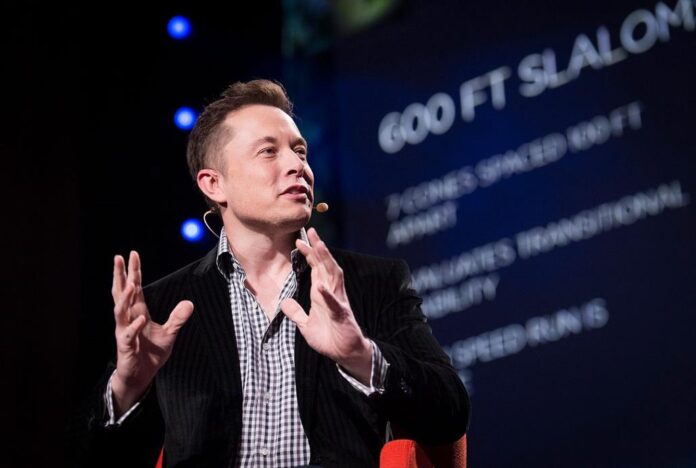Despite Tuesday’s Nov. 5 celebration of Donald Trump’s presidency win, Elon Musk, founder of Tesla and SpaceX, remains the focus of scrutiny: two lawsuits have been filed against him for fraud and breach of contract on his one million dollar giveaway.
On Oct. 6, Musk offered 47 dollars for every referred registered swing state voter who signed their America PAC (political action committee) petition supporting “free speech and the right to bear arms,” raising questions about the legality of his actions. “Easy money,” Musk called it on X, an offer he kept increasing until hitting the million dollar mark.
The initial payout, first mentioned on an X post, increased to 100 dollars on Oct. 17 for those in Pennsylvania, a critical election state which helped secure 19 Electoral College votes for Trump. On Oct. 9, during a town hall meeting in Pennsylvania, Musk upped his 100-dollar offer to a one million-per-day giveaway to a randomly selected person who signed the petition. This offer brought more attention to its potentially fraudulent nature due to its registration prerequisite — a prerequisite that he has denied, contrary to his PAC’s online petition eligibility requirements.
The million dollar offer was meant to go until Nov. 5. However, on Oct. 23, a warning letter issued by the Department of Justice (DOJ) from its Public Integrity Section (PIN) temporarily halted the daily winner announcements. It’s uncertain if this warning was the reason for the absence of the lottery prize that same day; regardless, the payout continued on the evening of Thursday, Oct. 24 with two more winners, defying the DOJ’s warning. Law experts denounced this action as a violation of the federal law regarding voting-prohibited acts; his actions could potentially land him five years in prison.
This isn’t the first time Musk’s PAC has been under scrutiny. Since its creation in May 2024, the organization has run in favour of former U.S. President Donald Trump and in opposition to Vice President Kamala Harris while financially supporting and collecting data on voters, especially those in swing states. Despite finding no evidence of law-breaking from the PAC — after a voter’s rights group pleaded for investigation into their tactics — the states of Michigan and North Carolina said they would remain vigilant to ensure voter registration remained fair.
Musk, who was offered a leadership position contingent on Trump’s victory, defended his giveaways on Friday, Oct. 25, and said, “To be clear, this is not a petition to vote for or register for anyone. It’s really a petition in support of the Constitution of the United States, and in particular, freedom of speech and the right to bear arms,” two popular concepts among conservative voters.
On Monday, Oct. 21, a group of public officials wrote in a letter acquired by ***The Washington Post* requesting an investigation of the PAC’s payments. They stated that while the offer was framed in a way that encouraged the signature for the petition rather than voter registration, the registration was still a prerequisite.
“Many of the payments are restricted to registered voters, so anyone who wishes to get paid must first register.”
Loyola Law School Professor Jessica Levinson shared with ***USA TODAY* her expertise on a potential judge interpretation, pointing out the buyout’s intended audience.
“It’s not just the lottery system … It’s who it is targeted to — it’s not just everybody in America. It’s just registered voters, just in swing states. And it was announced shortly before the election deadline in many of those states.”
On Monday, Nov. 4, a Pennsylvania judge ruled the giveaways could continue after Larry Krasner, Philadelphia’s city’s district attorney, filed a lawsuit attempting to stop the “illegal lottery.” This was done on the grounds of misleading rules and going against Pennsylvania’s lottery and consumer protection laws.
In defence of these allegations, Musk’s lawyer, Chris Gober, revealed the winners were pre-selected.
“There is no prize to be won; instead recipients must fulfill contractual obligations to serve as a spokesperson for the PAC.” He said winners “are not chosen by chance.”
This contradicted Musk’s Oct. 19 statement:
“We’re going to be awarding $1 million randomly to people who have signed the petition every day from now until the election.”
This statement was instantly perceived as a possible liability and has resulted in lawyer Robert Anthony Alvarez and Arizonan civilian Jacqueline McAferty initiating legal proceedings against Musk in a federal court in Texas.
Alvarez’s lawsuit points to the biased targeted demographic.
“The selection not only is not random but is a targeted process that eliminates anyone who is not a Republican or vocal supporter of Donald Trump.”
McAferty further contributed to the discussion.
“Defendants have continued to promote the petition as a chance to win $1,000,000 ‘randomly’ while simultaneously choosing winners based on selective, predetermined criteria.”
Musk has yet to comment publicly on this.


